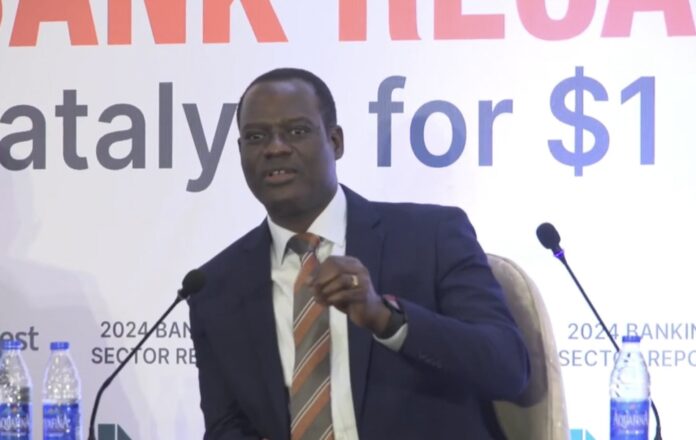ABUJA: The Chairman of the Presidential Fiscal Policy and Tax Reforms Committee, Taiwo Oyedele, has projected that Nigerian states could earn more than ₦4 trillion annually from 2026 when new Value Added Tax (VAT) reforms come into effect.
Speaking in Abuja during the launch of the BudgIT State of States 2025 Report, which also marked the initiative’s 10th anniversary, Oyedele said the new revenue structure would see states’ share of VAT rise to 55 per cent, providing a significant boost to subnational finances.
With VAT reforms kicking in from 2026, states’ share will rise to 55 per cent. That could amount to over ₦4 trillion in 2026.
The question is: will this money be spent, or will it be invested? he stated.
Oyedele noted that although the Federation Account Allocation Committee (FAAC) disbursements had more than doubled from ₦5.4 trillion in 2023 to ₦11.4 trillion in 2024 many Nigerians were yet to feel the benefits.
States are receiving more money than ever before. But there is a paradox while governments have more naira, citizens have less disposable income, he added, urging governors to prioritize investments that directly improve living conditions.
The BudgIT report revealed that 21 states still depend on federal allocations for over 70% of their income, a dependency Oyedele described as worrying.
However, he acknowledged positive strides such as Enugu’s 381% growth in internally generated revenue and Bayelsa’s 174% increase.
He explained that the new tax laws, which allocate all proceeds from electronic money transfer levies to states and exempt state bonds from taxes, would help reduce borrowing costs and encourage fiscal sustainability.
This is a unique opportunity for states to build resilience, close tax gaps, and invest in infrastructure, he stressed.
Oyedele also observed a positive shift in expenditure patterns, noting that for the first time in years, capital spending has overtaken recurrent expenditure.
However, he cautioned that implementation remained weak with education spending averaging just ₦7,000 per citizen and health allocations at ₦3,500 per citizen.
On debt, the report showed a ₦2 trillion reduction in domestic debt and a $200 million fall in foreign loans, with 31 states lowering their domestic obligations. Despite this, states still owe over ₦1.2 trillion in arrears to pensioners, contractors, and workers.
Borrowing isn’t the problem the unproductive use of debt is, Oyedele cautioned.
According to the 2025 rankings, Anambra emerged as the best-performing state fiscally, followed by Lagos, Kwara, Abia, and Edo. Cross River, however, dropped sharply from 5th in 2024 to 29th in 2025, sparking concerns over governance.
Also speaking, Dr Muhammad Abdullahi, Deputy Governor of the Central Bank of Nigeria (CBN) in charge of Economic Policy, urged states to maintain fiscal discipline and transparency as revenues expand.
He said the BudgIT report had become a credible reference for assessing state performance and guiding policy reforms.
The challenge is to lock in this fiscal discipline permanently, Abdullahi said, urging states to digitize internal revenue collection, fully implement Treasury Single Accounts, and prioritize capital investments.
He also revealed that the CBN was developing tools to help states hedge foreign currency risks and manage exposures more effectively.
Meanwhile, Razaq Fatai, Head of Economic Intelligence at the Nigerian Governors’ Forum (NGF), noted that the report had become a valuable instrument for promoting accountability and peer learning among governors.
He said initiatives such as SFTAS (State Fiscal Transparency, Accountability and Sustainability) and SABER (State Action on Business Enabling Reforms) had improved transparency and the business climate across states.
BudgIT Co-founder, Oluseun Onigbinde, in his remarks, said the State of States report had evolved into a mirror reflecting the choices of subnational governments, fostering competition in transparency and budget accountability.
This report began with the belief that every kobo meant for citizens should be traceable, justified, and used to improve lives, he said.
Onigbinde urged states to use data-driven governance to prioritise education, health, and infrastructure, warning that Nigeria’s overreliance on federal allocations remained a major obstacle to economic resilience.
He concluded that transparency must remain the foundation for trust and growth, enabling both citizens and investors to benefit from the country’s fiscal reforms.



